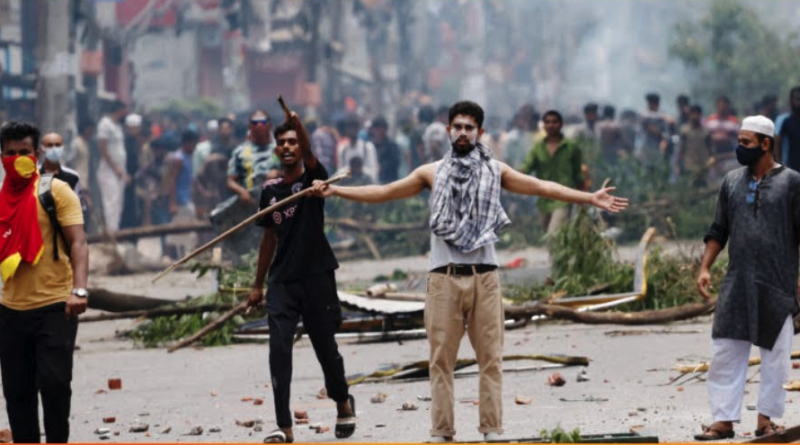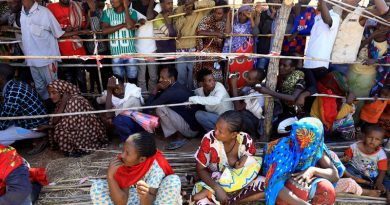Bangladesh’s Gopalganj Massacre: A Crime Against Humanity Unfolds
This was not a case of crowd control gone wrong. This was a premeditated act of state terror.
On July 16, 2025, Bangladesh witnessed one of the darkest and bloodiest chapters in its recent history. What unfolded in Gopalganj was not a random outbreak of violence—it was a calculated, state-sponsored massacre, deliberately executed by the interim government of Nobel Peace Prize laureate Muhammad Yunus. This regime, which came to power under the banner of restoring democracy, justice, and human rights, has now exposed its true face: repressive, authoritarian, and dangerous.
The government forces—comprising both police and military—opened fire on unarmed demonstrators in the heart of Gopalganj. At least four people were confirmed dead and more than a hundred sustained injuries. The deceased have been identified as Dipto Saha (25), Ramzan Kazi (24), Sohel Molla (35), and Imon Talukder (28)—all ordinary citizens. What they faced on that fateful day was anything but ordinary. Their crime? Defending the legacy of the Father of the Nation, Bangabandhu Sheikh Mujibur Rahman, against a political organization that was permitted to spew venom unchecked.
The crisis was sparked by provocative and deeply offensive statements made by the National Citizens Party (NCP), a fringe group that enjoys the quiet backing of the Yunus administration. During their “March to Gopalganj” rally, NCP leaders vowed to “bury Mujibism” and destroy Bangabandhu’s mausoleum. For the people of Gopalganj—who consider Bangabandhu’s memory sacred—this was an open declaration of war.
In response, residents from various parts of the district, including Gandhiyashur, Ulpur, Chowrasta, and the old bus terminal, began gathering peacefully to protest these threats. These were not armed rebels or political militants. These were farmers, students, day laborers, and shopkeepers—united not by political affiliation but by a common sense of justice and respect for the country’s founding leader.
But instead of diffusing tensions or holding the NCP accountable, the government treated these peaceful demonstrators as enemies of the state. Troops and police descended on the crowd, opening fire without warning. Tear gas filled the air. Live bullets ripped through flesh. Social media videos show soldiers stomping on wounded protesters, dragging lifeless bodies, and making sure that those on the ground would not get up again.
The brutality was not limited to the moment of confrontation. Several reports indicate that bodies were secretly removed. In one particularly harrowing video, a police officer can be heard saying of a gravely injured man, “He’s pretending to be dead,” before tossing him like garbage into a police van. In another clip, white tissue protrudes from a bullet wound in a young man’s abdomen.
This was not a case of crowd control gone wrong. This was a premeditated act of state terror. The fact that multiple agencies coordinated this attack across several sites, under the watch of senior government advisors, makes it even more chilling. Sources reveal that the advisors for Home, Law, and Local Government were monitoring the situation in real-time from Police Headquarters, ensuring a seamless execution of this violent suppression.
From a legal perspective, the actions of the Yunus administration are indefensible. Articles 31, 32, and 35 of the Constitution of Bangladesh guarantee the right to life, personal security, and due process. None of these constitutional protections were upheld in Gopalganj. The victims were neither charged with crimes nor given a chance to defend themselves. They were summarily executed.
Domestic law—including the Police Act, the Code of Criminal Procedure (CrPC), and military conduct regulations—clearly stipulate that the use of deadly force must meet three criteria: necessity, legal authorization, and proportionality. None of these thresholds were satisfied. No police officer or soldier was harmed. No government property was destroyed. And yet, lethal force was used.
The crimes in Gopalganj also constitute clear violations of international law. Articles 3 and 5 of the Universal Declaration of Human Rights affirm the right to life and the right to be free from cruel, inhuman, or degrading treatment. Articles 6 and 7 of the International Covenant on Civil and Political Rights (ICCPR), to which Bangladesh is a signatory, prohibit arbitrary killing and torture by state actors. These treaties are not just symbolic—they carry binding legal obligations.
Most significantly, under Article 7 of the Rome Statute of the International Criminal Court (ICC), a “widespread or systematic attack directed against any civilian population” with knowledge of the attack constitutes a crime against humanity. The scale, coordination, and brutality of the crackdown in Gopalganj fit this definition. The state’s actions were not spontaneous reactions—they were carefully planned, organized, and executed.
Moreover, the psychological and political intent behind the crackdown—instilling fear in the populace and punishing dissent—aligns with the legal concept of persecution. The Rome Statute also defines persecution as a crime against humanity when it involves the intentional and severe deprivation of fundamental rights against a group or population.
The violence was accompanied by state-led information suppression. Mainstream media, many aligned with corporate interests or controlled by the administration, portrayed the protesters as aggressors. Headlines read, “Protesters Clash with NCP Supporters,” conveniently omitting the fact that the protesters were reacting to hate speech and threats against a national monument. Social media platforms saw posts taken down, accounts suspended, and internet speeds throttled to limit the spread of video evidence.
This chilling attempt to rewrite history in real-time is as dangerous as the violence itself. The Yunus administration not only targeted bodies in Gopalganj—it also targeted the truth.
It is also essential to question the deafening silence from the international community. In the past, Western governments, human rights organizations, and UN bodies have been quick to condemn incidents of far lesser gravity. Why then the muteness in the face of such a blatant and bloody abuse of power? The answer may lie in what experts call “strategic silence”—a diplomatic tactic used to maintain relationships with governments seen as useful for regional stability, investment, or geopolitical leverage.
This selective outrage is not just hypocritical—it is dangerous. It sends a message to repressive regimes that they can act with impunity, as long as they serve the right interests. But human lives are not bargaining chips. The people of Bangladesh are not expendable.
Muhammad Yunus, long hailed as a global icon of peace and innovation, now finds his name linked to one of the most heinous acts of state violence in the country’s history. His administration was not elected—it was installed. And with no democratic mandate, no transparency, and now no respect for life, it lacks all moral legitimacy.
Yunus cannot absolve himself by citing ignorance. As the head of government, he bears ultimate responsibility. The International Criminal Court must open a preliminary investigation into the events in Gopalganj. So must the UN Human Rights Council. Independent investigators must be granted immediate access to the affected regions, witnesses, and all government communications related to the crackdown.
Justice must also extend beyond prosecution. The families of the victims must receive reparations. Medical treatment must be provided to the wounded. And the right to protest—enshrined both in domestic and international law—must be restored and protected.
The world must speak now, not later. Every moment of silence adds another layer of injustice to the already unbearable burden borne by the victims’ families.
Let us also remember that this is not just a Gopalganj issue. It is a national crisis. Today it is Gopalganj—tomorrow it could be any district, any village, any street. This massacre marks a turning point in Bangladesh’s democratic journey. It is a test of our collective conscience, both within the country and beyond.
The names of Dipto, Ramzan, Sohel, and Imon are etched in blood into our national memory. Their deaths are not just personal tragedies—they are political warnings. Their sacrifice demands not only mourning but mobilization.
We urge all human rights defenders, legal bodies, international institutions, and concerned citizens of the world: do not let this massacre be swept under the rug. Demand accountability. Demand justice. Demand the truth.
The Yunus administration must be held accountable for crimes against humanity. Bangladesh cannot move forward if its people continue to be crushed under the boots of authoritarianism. Democracy is not built on the silence of the dead, but on the voices of the living demanding justice.
History will remember this day. And history will not forgive those who remained silent.



